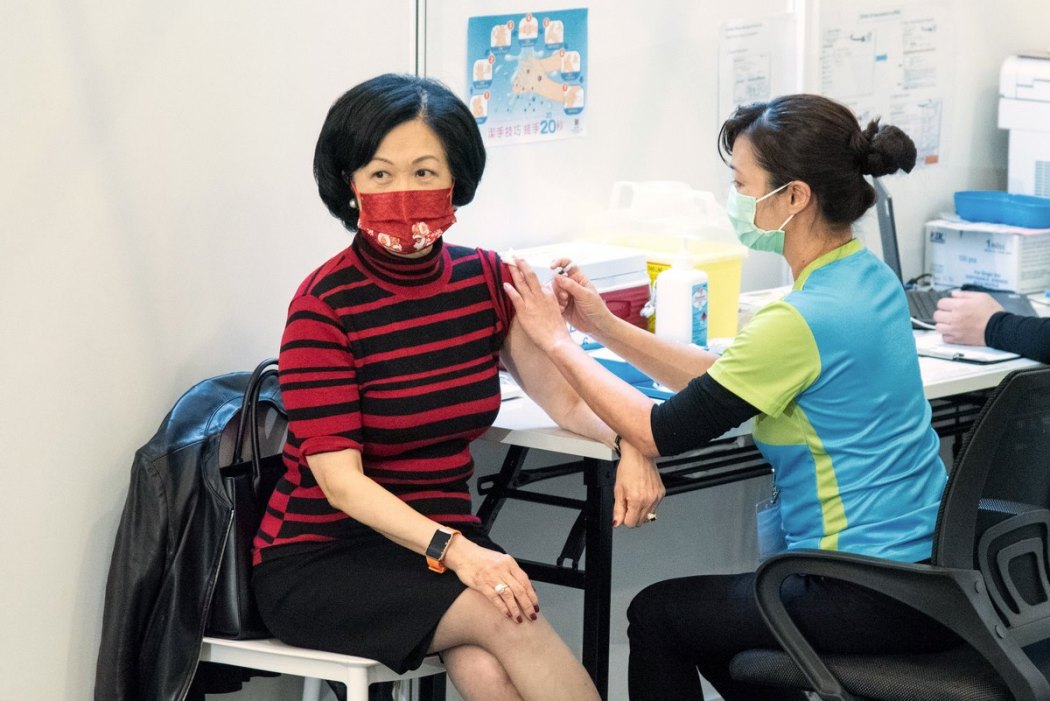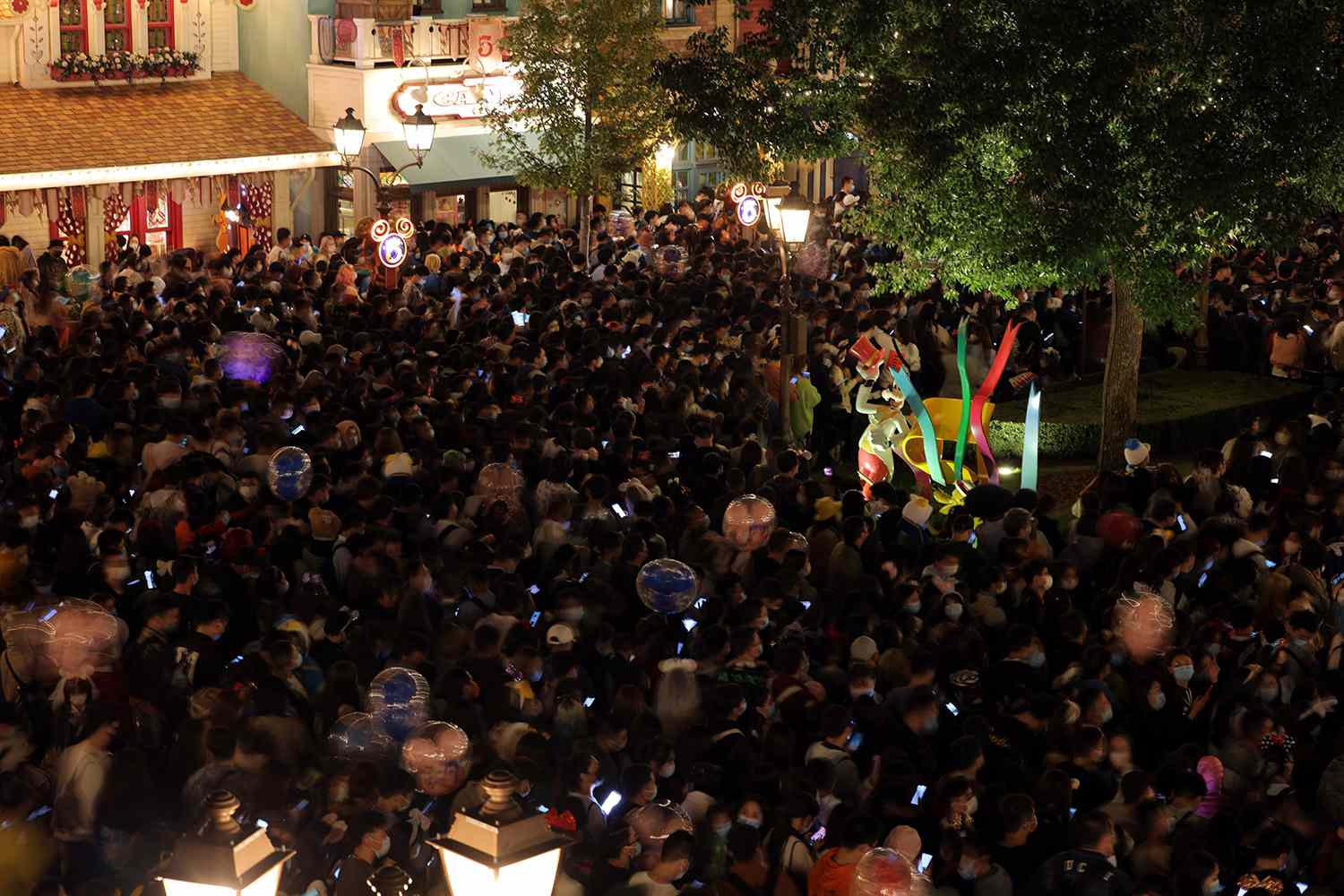- Joined
- Nov 12, 2011
- Messages
- 35,945
- Reaction score
- 4,933
@ShinkanPo @JDragon Beijing is contemplating the red pill to have any chance of reopening their borders again, after spending months talking shit on the vastly-superior mRNA vaccines that they deriled as "human experiment".<Lmaoo>
This is particularly amusing since some of the fake news made in China (and Russia) against mRNA vaccines are still being regurgitated by anti-vaxxers in the WR.
1.4 billion doses later, China is realizing it may need mRNA COVID vaccines
China may finally approve the BioNTech vaccine, after months of promoting homegrown options.
BY GRADY MCGREGOR | July 16, 2021
China is the only major economy in the world not to approve or distribute COVID-19 vaccines that use the mRNA technology proven to be one of the most effective tools in preventing the spread of COVID-19. But China’s mRNA stance may be changing.
On Thursday, Chinese media outlet Caixin reported that Chinese regulators had completed a review of the COVID-19 jab developed by German mRNA vaccine maker BioNTech and distributed locally via China’s Fosun Pharma. Fosun is still awaiting final approval from regulators, but, once approved, Fosun could deploy the 100 million doses it acquired from BioNTech last December to the Chinese market by the end of 2021.
The approval would also unlock Fosun’s capacity to produce 1 billion more BioNTech shots domestically per year, part of the deal Fosun and BioNTech struck in May to make a new joint venture company in China.
The anticipated approval is a long time coming.
Fosun has been applying to get the BioNTech vaccine approved in the Chinese market since at least last November, when BioNTech and its other global distributor Pfizer first announced clinical data showing that the mRNA vaccine was effective against COVID-19. The Pfizer and BioNTech vaccine has since gained approval from the World Health Organization and has proved to be highly effective, including against the Delta variant, in halting outbreaks and preventing deaths related to COVID-19 in real-world settings.
China’s delayed approval of the BioNTech jab is likely due, in part, to the government publicly casting doubt on the usefulness of mRNA vaccines earlier this year and the promotion of its homegrown alternatives.
But the recent rise of the COVID-19 Delta variant may be pushing Beijing to change tack. Amid Delta-driven COVID-19 outbreaks, foreign governments appear to be losing some confidence in the performance of Chinese vaccines compared with mRNA vaccines from companies like BioNTech and Moderna. And Beijing may be coming around to the idea that an mRNA vaccine could bolster its own pandemic response and ease its long-awaited border reopening.
China and mRNA
China’s resistance to mRNA technology became apparent earlier this year, when state media outlets attempted to sow doubt about mRNA jabs from companies like Pfizer as a means to promote China’s domestically produced shots.
On Jan. 15, the Global Times, a nationalistic tabloid, blasted Western media outlets for their critical coverage of Chinese jabs and hinted that relying on new mRNA vaccines was dangerous.
“This large-scale promotion of Pfizer’s vaccine is a continuous process of large-scale testing on human beings,” the Global Times wrote.
Days later, the People’s Daily, the state-owned mouthpiece of the Chinese Communist Party, followed up with a story that promoted an unproven link between deaths in Norwegian nursing homes and Pfizer’s shot.
Nicholas Thomas, a professor of health security at the City University of Hong Kong, says skepticism of Pfizer jabs has spread to the Chinese public, and “consistently negative views” toward mRNA vaccines have proliferated on China’s tightly controlled social media platforms.
“The domestic China narrative on vaccines has been exclusively tilted towards the inactivated virus types” as a means to promote the homegrown shots, says Thomas.
Instead of mRNA, China’s leading vaccine makers, namely the state-owned Sinopharm and private firm Sinovac, rely on inactivated vaccine technology. These vaccines introduce a killed—or inactivated—form of COVID-19 into the body’s immune system, and China made the bet that using the century-old approach would create fewer regulatory and production problems than newer methods.
But China’s official line regarding mRNA vaccines has softened since January.
“Everyone should consider the benefits mRNA vaccines can bring for humanity,” Gao Fu, director-general of the Chinese Center for Disease Control and Prevention, said in a speech in April.
But Gao’s comments have not marked a complete reversal in China’s stance toward mRNA vaccines, notes Yanzhong Huang, a senior fellow for global health at the Council on Foreign Relations.
“We haven’t seen any strong efforts to promote mRNA vaccines in China,” Huang says. “There is a political concern that if China approves the mRNA vaccines, it might send a signal that leads people to question the effectiveness of the existing [Chinese] vaccines.”
China may be trying to find a sort of middle ground on the issue.
Caixin reports that authorities plan to use the BioNTech jabs not as alternatives to its domestically produced shots, but instead as optional booster shots after people get a two-dose regimen of Chinese vaccines. Thomas says this measure may be the best way for China to avoid undermining confidence in its existing vaccine campaign while also improving immunity in its population.
“[BioNTech booster shots] would combine with, and thereby validate, the existing vaccine regime in China,” says Thomas.
China may also eventually add mRNA shots from domestic producers.
Walvax Biotechnology, a private vaccine maker based in China’s southwestern Yunnan province, has the leading mRNA vaccine candidate in China and is awaiting clearance to begin final Phase III trials.
“I believe China really needs to have its own mRNA vaccine,” says Dr. Tong Xin, director of research development at Walvax. “This vaccine technology has been proved effective…I really hope it gets launched on Chinese land.”
Waning confidence
For its existing vaccines, China is largely relying on Sinopharm and Sinovac jabs, which were recently approved for emergency use by the World Health Organization.
But even with the WHO’s backing, governments globally appear to be losing confidence in the jabs as questions crop up about the efficacy of Sinovac and Sinopharm vaccines, especially against the more transmissible Delta variant.
In Thailand, authorities announced on Monday that people who got injected with one dose of Sinovac would get AstraZeneca’s jab as their second dose and fully vaccinated health workers would be offered a booster shot of Pfizer or AstraZeneca. The move came after Thailand reported 618 COVID-19 infections and one death among 677,000 medical workers who were fully vaccinated with Sinovac’s two-dose regimen.
Indonesia’s health minister also recently hinted that the country will reduce its reliance on Sinovac shots amid reports that hundreds of health care workers had contracted COVID and 10 had died of the disease after receiving Sinovac jabs.
The United Arab Emirates recommends that people receiving the Sinopharm jabs get a booster shot of Pfizer six months after they complete their Sinopharm regimen.
Ashley St. John, an immunologist at Duke-NUS Medical School in Singapore, says that all available evidence points to Sinovac and Sinopharm jabs preventing infections and saving lives, even with the rise of new variants.
Sinovac and Sinopharm have not released data on how their COVID vaccines perform against new variants. Scientific studies conducted before the emergence of the Delta variant showed that the Sinovac and Sinopharm jabs were 50% and 79% effective, respectively, in preventing COVID-19 infections. The BioNTech-Pfizer vaccine, meanwhile, was 95% effective against COVID-19 in clinical trials and is likely to be at least 64% effective against the Delta variant.
St. John says there is no reason for countries to stop using Sinovac or Sinopharm jabs, unless they have a better option.
“There will be people who survived COVID because they have [Sinovac and Sinopharm] vaccines,” she says. “But some countries have other options that they see as better…The mRNA vaccines are performing better, so it makes sense to endorse that.”
Closed borders
China may also need to accept the mRNA shots to reopen its borders.
Relying largely on Sinovac and Sinopharm, China has distributed over 1.4 billion vaccine doses to its citizens, enough to fully cover over half its population. But even with China’s blistering vaccination pace, the country may not reopen its borders until mid-2022, in part owing to concerns that the Sinovac and Sinopharm jabs may be effective in preventing deaths, but limited in their ability to prevent transmission of the virus, the Wall Street Journal reports.
China’s borders are still locked to most outsiders, and Beijing continues to adhere to a strict COVID zero strategy to stamp out even small outbreaks. After a COVID-19 outbreak infected dozens of people in the southern city of Guangzhou in June, for example, authorities locked down large parts of the city, sent thousands of people into quarantine, and tested millions for COVID-19.
“If China still sticks to this containment-based approach [to COVID-19], that means its priorities are preventing infections. There are signs that Sinovac and Sinopharm’s inactivated vaccines are not that effective in terms of achieving that objective,” says Huang.
If China does not embrace mRNA vaccines, it may get left behind countries that do.
“What is now clear is that [mRNA] technology works and is superior to the current Chinese [inactivated] approach,” says Thomas. “The Chinese government needs to unpick its own position on mRNA vaccines if it is to provide better community protection as it opens up.”
https://fortune.com/2021/07/16/china-mrna-vaccine-pfizer-biontech-fosun-doses/amp/
Hey I got my first dose of Sinovac the other day.
Nice knowing you.
And yeah funny how the WR anti vaxers are in essence coopting Chinese propaganda.
Saboteurs if you will.
Good luck to you and God speed to your country.


/cloudfront-us-east-2.images.arcpublishing.com/reuters/PMDFJPYYTRJYJNOFA5DRGD6SHM.jpg)




